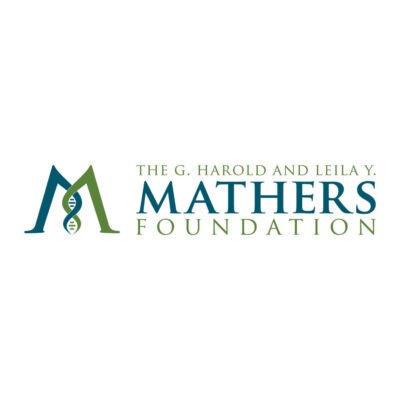Founded in 1982, the G. Harold and Leila Y. Mathers Foundation aims to advance knowledge in life sciences by sponsoring scientific research that will benefit mankind. As investigative methodologies, technologies, and tools have advanced, The Mathers Foundation embraces innovative translational research for a better future.
The Mathers Foundation recently awarded grants totaling $2.16 million to Dana-Farber’s Eric Fischer, PhD; Amy Si-Ying Lee, PhD; and Pere Puigserver, PhD, to advance key research into structural biology, translation regulation, and cell biology and mitochondrial medicine.
Supported by the foundation, Fischer will pursue research into structural mechanistic understanding of HUWE1 (a member of the HECT family of ubiquitin ligase), a master regulator of the cellular stress response that plays a role in carcinogenesis, as well as a role in developing resistance to cancer therapies. Though little is known about how HUWE1 exerts its critical function, Fischer will work to establish a molecular understanding and shed light on how the understudied class of HECT ubiquitin ligases work, ultimately providing the basis for future efforts to develop novel anti-cancer therapeutics.
Lee’s research concerns the fundamental understanding of the correlation between cellular state, gene regulation, and the ribosome. While all cells in the human body contain the same genetic information, every cell has its own role and function from organ development to responding to environmental cues. The ribosome plays a key role in a process known as translation, in which genetic material is decoded to create new proteins. With this funding, Lee will study whether ribosome composition can be regulated by the cell in response to cellular stresses, and how ribosome composition provides a new mechanism by which the cell controls gene expression. Her work will close a critical gap in the understanding of gene expression, as well as specialized translational control during multiple developmental and environmental contexts.
Puigserver will address an unsolved problem in cell biology: the principles that govern somatic mitochondrial pathogenic heteroplasmy. Mitochondrial heteroplasmy defines the severity of cellular and tissue damage in mitochondrial diseases with mutations in the mitochondrial DNA (mtDNA). These mtDNA mutations and mitochondrial failures occur in aging; cardiomyopathies and heart failure; cancer; and metabolic and degenerative diseases such as obesity, diabetes, Parkinson’s, or Alzheimer’s diseases.
“Right now, very little is known about the cellular mechanisms that balance levels of pathogenic and healthy mitochondria in somatic cells, creating a need for heightened research in this area,” said Puigserver. “This funding from The Mathers Foundation will help me advance the understanding of basic human biology and the causes of genetic variation of mitochondrial organelles that leads to severe tissue damage, laying the important groundwork for new therapeutics for metabolic and degenerative diseases.”
“The Mathers Foundation is highly supportive of innovative, potentially transformative projects in the basic life sciences and translational medical research. These three projects— in gene expression, in structural biology, and with mitochondrial organelles—share that common vision and commitment,” said Zach Handelman, director of operations at The Mathers Foundation. “We’re proud to support the doctors at Dana-Farber in their journeys to change the world of cancer.”



